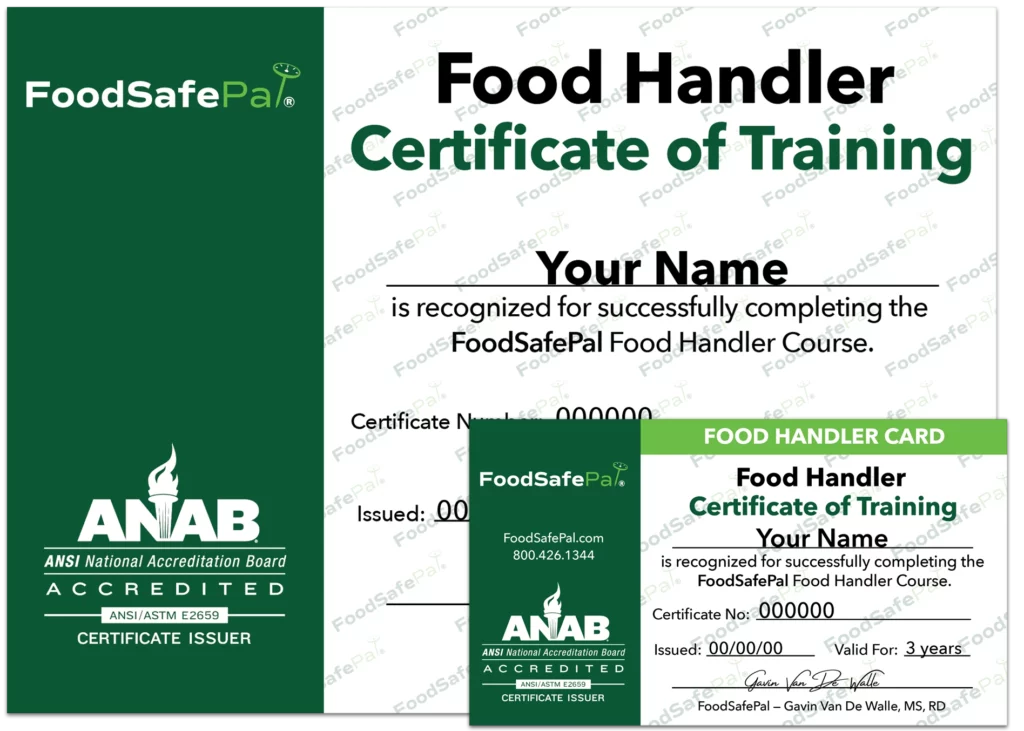Indiana Cottage Food Law: Food Safety Training Requirements
Food that you make at home and sell directly to people is known as cottage food.
Each state has its own cottage food law that determines the types of foods you can sell, to whom and how you can sell them, and how much revenue you can earn each year from the sale of your homemade goods.
Before you can start a cottage food business, most states have certain requirements, a major one being the completion of an approved food safety training course.
This article discusses the Indiana cottage food law, and whether you need food safety training to sell homemade food.

Indiana cottage food production
Indiana allows the production and sale of homemade goods that don’t require time or temperature controls to keep them safe.
Examples of approved foods include:
- baked items, like cookies, cakes, fruit pies, cupcakes, bars, yeast breads, fruit breads, baguettes (no creme or pumpkin pies)
- candy and confections, like caramels, chocolate, fudge, peanut brittle, chocolate covered fruits, bon bons, buckeyes, chocolate covered nuts
- unprocessed fruits and vegetables
- tree nuts and legumes
- pickled cucumbers processed using a traditional method (no vinegar or acidifier)
- in-shell chicken eggs (with Egg Board license and labeling)
- some rabbit and poultry (with restrictions)
- honey, molasses, sorghum, maple syrup
Except with certain restrictions, you cannot sell meats and other animal products.
Indiana requires that you sell the allowed foods directly to Indiana residents in person, by mail order, or through the internet.
Indiana regulates cottage food businesses — called home based vendors — different than retail food establishments like restaurants, so you don’t need a license or permit and the department of health also won’t routinely inspect your home kitchen.
However, the department of health can inspect your inspection if the receive customer complaints about the safety of the food you sell or to investigate foodborne illness outbreaks potentially linked with your products.
Misbranding your product is also grounds for the state to inspect your kitchen.
Indiana has no restriction on the annual revenue you can earn from the sale of your homemade goods.
Summary
Under the Indiana cottage food law, you can sell foods that don’t require time-temperature controls for safety directly to customers. Indiana doesn’t regulate cottage food production operations like they do food establishments, so you don’t need a license or permit.
Do you need food safety training to sell homemade food in Indiana?
Indiana requires that you obtain a food handler certificate from a certificate issuer that is accredited by the ANSI-National Accreditation Board (ANAB).
A food handlers certificate proves that you have completed a course on basic food safety principles and passed a test about these principles.
FoodSafePal’s Food Handler course is ANAB accredited so it meets Indiana’s cottage food law requirements for food safety training.
Earn Your Food Handlers Card + Certificate to Sell Cottage Foods
Finish in 90 Minutes. Meets Indiana’s Cottage Food Law.

FoodSafePal’s Food Handler course is designed for food workers in retail food establishments so some of the content isn’t applicable to cottage food operators.
Still, it covers the important food safety principles you must know to keep your homemade products safe from disease-causing organisms called pathogens that can make people sick.
After you complete the course content, you must take a test and answer at least 28 (70%) out of 40 multiple-choice question to pass and earn your food handlers certificate and card.
You can learn and test in under two hours completely online.
Upon passing, you can immediately download or print it as proof that you have completed the training.
Keep this certificate in a safe and easily accessible place as you must provide a copy as requested by the state department of health or a customer.
You must maintain the training by retaking and passing the course every three years.
Summary
Indiana’s cottage food law requires the completion of a ANAB-accredited food handler course, such as the one offered by FoodSafePal.
Labeling requirements
Indiana’s cottage food law requires that each food is properly labeled with certain information.
This information allow people to whom you sell contact you in the case of an illness potentially linked to your product.
It also informs customers of allergens that may be present and that the food is produced in a home kitchen not routinely inspected by the health department.
This label must include the following information:
- your business name and address
- the common or usual name of the product
- the ingredients listed in descending order of predominance by weight
- the net weight or volume of the food by standard measure or numerical count
- the statement in 10 point type: This product is home produced and processed and the production area has not been inspected by the state department of health. NOT FOR RESALE.
If you have a website, you must post the label of each product on it.

Summary
Indiana’s cottage food law requires that each food you wish to make and sell have a label with the required information.
The bottom line
Under the Indiana cottage food law, you can produce and sell foods that don’t require time or temperature controls like baked and other dry goods directly to people throughout the state.
If you want to start a cottage food business in Indiana, you must first earn a food handlers card by completing and passing an ANAB-accredited food handler training course, such as the one offered by FoodSafePal.
After you complete the course and pass the test, you will be issued a certificate as proof of completion. You must maintain this certificate by retaking an approved food safety course every three years.
Earn Your Food Handlers Card + Certificate to Sell Cottage Foods
Finish in 90 Minutes. Meets Indiana’s Cottage Food Law.

Each food you make and sell must also have a label with the required information.






